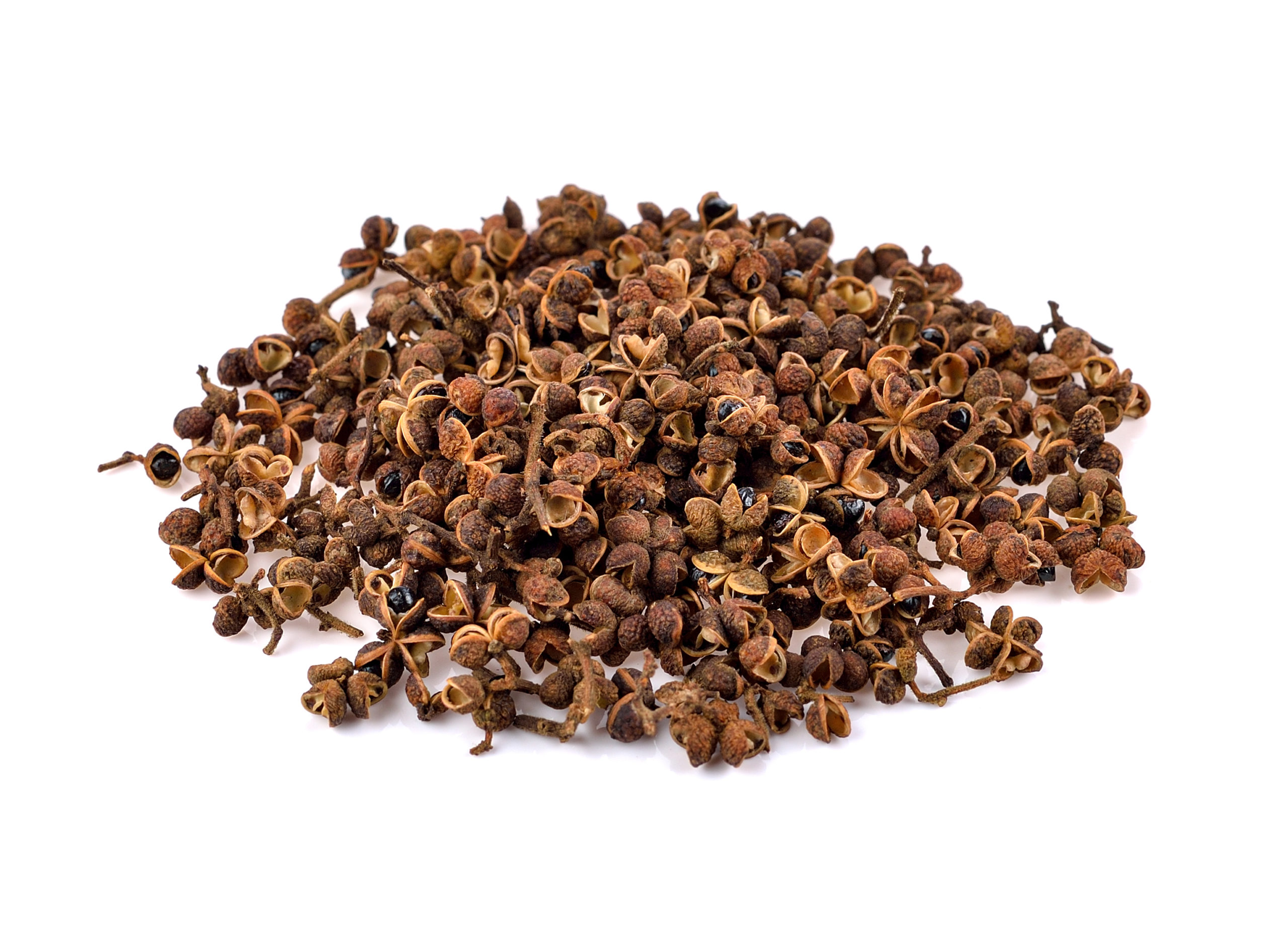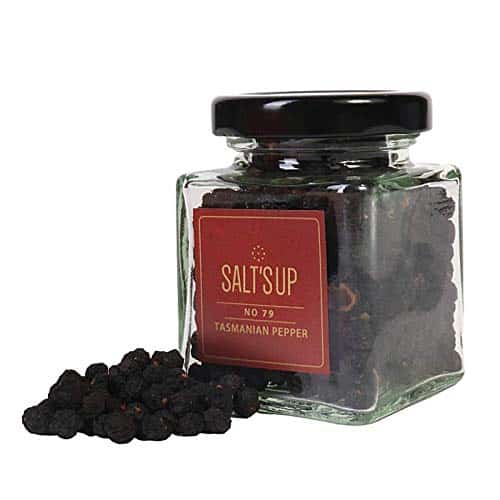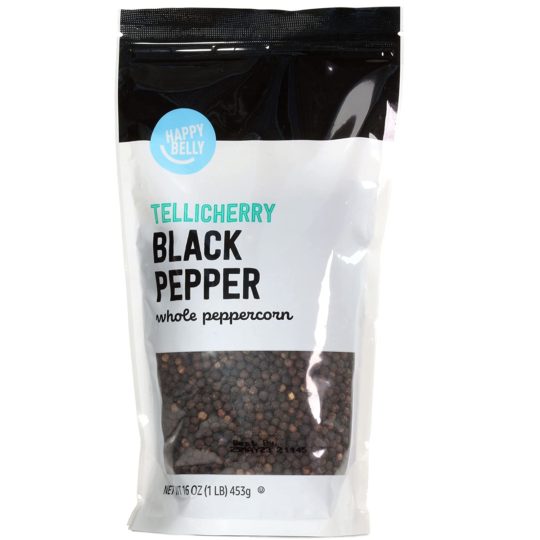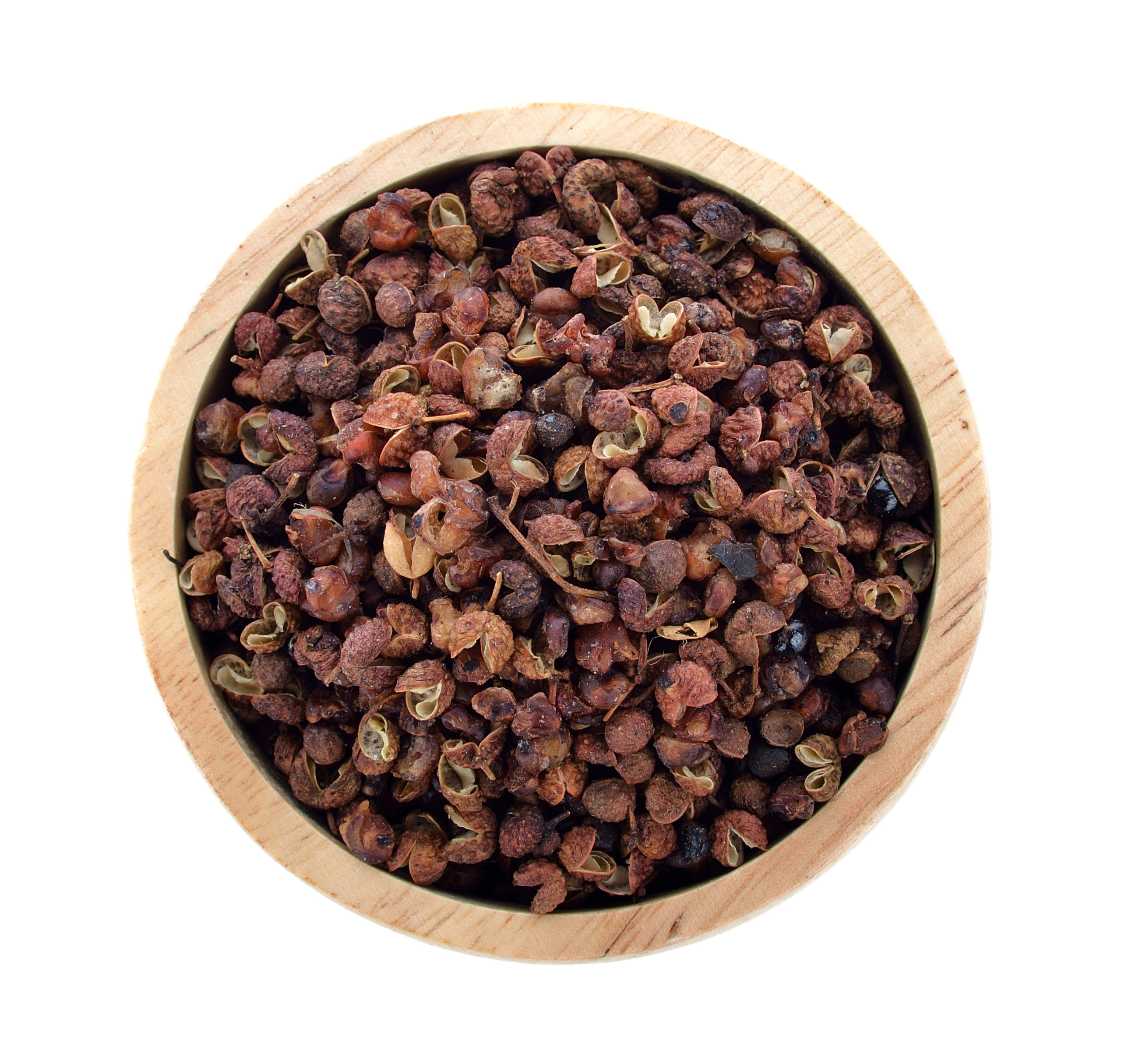Updated on April 9th, 2023
Sichuan peppers are the dried husks of the Chinese prickly ash tree’s fruit, not peppers. They’re well-known for their mentholated, somewhat numbing effect, although they don’t truly taste hot. Because of the numbing effect, they are usually served with spicy peppers in Sichuan food. The delicate lemony taste of these small husks typically goes into a subtle piney fragrance after a good sniff. Still, the heat of the chiles that generally accompany it in a dish sometimes mutes this complex perfume.

When a recipe calls for one or two items that you don’t have on hand, you have two options: put the dish on hold until you can get them or create a creative substitution. While no other item can replicate the piney, lemony flavor of Sichuan peppers — after all, only a handful generate the radiating numbing effect — a mix of coriander seeds and black pepper can.
Naturally, having actual Sichuan pepper on hand is the best bet. Still, in this article, we’ve found that grains of paradise, Tasmanian pepper, Tellicherry peppercorns, black pepper, and coriander can work well as a substitute to recreate the flavor of Sichuan peppers rather than the sensation.
What is Sichuan Pepper?
The husks of seeds from the prickly ash shrub Zanthoxylum, which belongs to the citrus family of plants, are used to make Sichuan pepper. The Sichuan peppercorn spice is made from only the pinkish-red husks around the seeds, with the actual seed removed. The entire husk or ground form of this peppercorn is available. It is a key component in the well-known Chinese Five-Spice powder, used in various savory Sichuan meals.
Sichuan pepper is also known as Sichuan peppercorns, Szechuan pepper, Huajiao in Chinese, and sansho in Japanese. Sichuan pepper is recognized for its fiery, spicy taste that alternates with sweetness and sourness. It has a scent that is quite similar to lavender. This peppercorn has a slightly sour taste at first, accompanied by a numbing heat and citrus undertones. Because of its specific chemical makeup, it produces a peculiar numbing feeling in the mouth. Although Sichuan pepper is not as fiery as black peppercorns, the tingling sensation it causes in the tongue improves the flavor of other components in your cuisine.
Sichuan Pepper Uses in Recipes
The most popular usage of Sichuan pepper is in Chinese five-spice powder, which also contains fennel, aniseed, cinnamon, and clove. It may also be used in various Sichuan cuisines, such as Dan-Dan noodles and Szechuan Chicken, fragrant, mouth-numbing spice. It’s a fantastic match with beef.
Much delicious meat, poultry, and noodle recipes contain Sichuan pepper. Infused Sichuan peppercorn oil is made from ground, roasted Sichuan peppercorn. It’s also combined with salt to generate a delicious Sichuan pepper salt that goes well with meat recipes.
Sichuan Pepper Substitutes
When you use the appropriate Sichuan pepper alternatives, your dinner will be seasoned to perfection. Many Chinese and Asian dishes call for Sichuan pepper. Unfortunately, perfect Sichuan pepper alternatives are hard to come by, and many advise against even trying.
Sichuan pepper, on the other hand, is famously difficult to come by and quite costly. Look to replace it with one of the Szechuan pepper substitutes listed below: grain of paradise, Tasmanian pepper, Tellicherry peppercorns, black pepper, and coriander are some of the most fantastic Szechuan peppercorn replacements. They won’t quite match the flavor profile of Szechuan peppercorns, but they’ll get close.
Tasmanian Pepper
The Tasmanian pepper is exclusively wild-harvested on Tasmania’s island, and it’s primarily found in various regions of Australia. The piper nigrum family does not include Tasmanian pepper, and it is not related to Szechuan pepper. This fragrant pepper has a flavor that is reminiscent of a fennel and juniper combination. It has the same flowery and woody characteristics as Szechuan peppercorns.
It’s a fantastic spice partner for meat recipes, just like the Sichuan pepper, for adding a flowery, pungent taste. In the same way, Szechuan pepper is utilized in Sichuan cuisines, Tasmanian pepper is commonly used in emu burgers and other Australian bush delicacies. Szechuan peppercorns can be replaced with Tasmanian peppercorns at a final concentration of 1.
Black Pepper
Although black pepper is not a great Sichuan pepper substitute, it will work in some foods. Fresh black peppercorns, in particular, have a strong scent and flavor intensity that resembles the fruity and earthy flavor of Sichuan pepper. To emulate the taste characteristic of the Szechuan pepper, some cooks recommend combining fresh black peppercorns with coriander seeds.
Grains of Paradise
Grains of paradise, sometimes known as Alligator pepper, is an African ginger spice. It comes from trees that grow along the coast of West Africa and is largely utilized in West African and North African cuisines. Grains of paradise taste comparable to a mix of black pepper and cardamom, with a hint of mild citrus, making it an excellent substitution for Szechuan peppercorns.
In any meal that calls for Szechuan pepper, add grains of paradise. Because grains of paradise isn’t as spicy as Szechuan pepper, you’ll need to use more to achieve the same amount of heat. When substituting grains of paradise for Szechuan pepper, use double the quantity that your recipe calls for.
Frequently Asked Questions (FAQs)
What distinguishes Sichuan pepper from black pepper?
Without Sichuan pepper, Sichuan cuisine’s classic dishes would be incomplete. The Sichuan pepper does not have more spicy heat than black peppercorns on its own, but the tongue tickle enhances flavors.
Is there a difference between Sichuan and Szechuan?
On the east coast, “Szechuan” is more common than “Sichuan,” while on the west, “Sichuan.”
Are red peppercorns and Sichuan peppercorns the same thing?
Green Sichuan peppercorns are gathered from a distinct variety of prickly-ash trees. They do not become red when ripe, contrary to popular assumption. Instead, they have a stronger citrus scent and elicit more severe tongue numbness, or “ma,” than their red equivalents.
Conclusion
Sichuan pepper has a spicy and robust taste that tingles and numbs the mouth. Many prominent Sichuan recipes rely on this peppercorn. If you don’t have Szechuan pepper, Tasmanian pepper is a good substitute. Tellicherry pepper and Grains of Paradise are the greatest replacements for Sichuan pepper.




